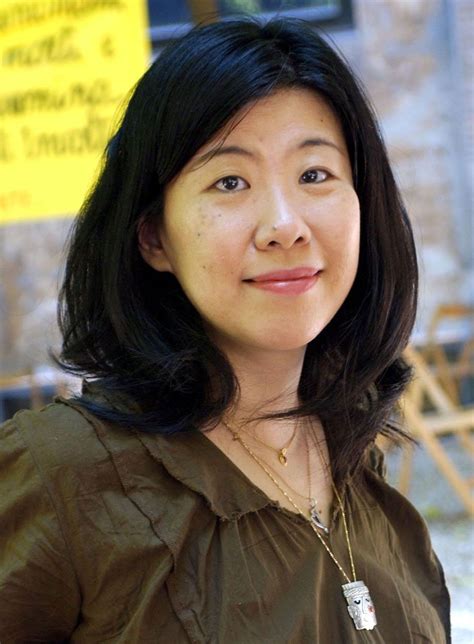A Quote by Raymond Carver
If we're lucky, writer and reader alike, we'll finish the last line or two of a short story and then just sit for a minute, quietly. Ideally, we'll ponder what we've just written or read; maybe our hearts or intellects will have been moved off the peg just a little from where they were before. Our body temperature will have gone up, or down, by a degree. Then, breathing evenly and steadily once more, we'll collect ourselves, writers and readers alike, get up, "created of warm blood and nerves" as a Chekhov character puts it, and go on to the next thing: Life. Always life.
Quote Topics
Alike
Always
Been
Before
Blood
Body
Body Temperature
Breathing
Character
Chekhov
Collect
Created
Degree
Down
Finish
Get
Get Up
Go
Gone
Hearts
Ideally
Just
Last
Life
Line
Little
Lucky
Maybe
Minute
More
Moved
Nerves
Next
Next Thing
Off
Once
Once More
Our
Ourselves
Peg
Ponder
Puts
Quietly
Read
Reader
Readers
Short
Short Story
Sit
Steadily
Story
Temperature
Then
Thing
Two
Up
Warm
Were
Will
Writer
Writers
Written
Related Quotes
If only you’d remember before ever you sit down to write that you’ve been a reader long before you were ever a writer. You simply fix that fact in your mind, then sit very still and ask yourself, as a reader, what piece of writing in all the world Buddy Glass would most want to read if he had his heart’s choice. The next step is terrible, but so simple I can hardly believe it as I write it. You just sit down shamelessly and write the thing yourself. I won’t even underline that. It’s too important to be underlined.
Learn a lot about the world and finish things, even if it is just a short story. Finish it before you start something else. Finish it before you start rewriting it. That's really important.
It's to find out if you're going to be a writer or not, because that's one of the most important lessons.
Most, maybe 90% of people, will start writing and never finish what they started. If you want to be a writer that's the hardest and most important lesson: Finish it. Then go back to fix it.
The best advice I can give on this is, once it's done, to put it away until you can read it with new eyes. Finish the short story, print it out, then put it in a drawer and write other things. When you're ready, pick it up and read it, as if you've never read it before. If there are things you aren't satisfied with as a reader, go in and fix them as a writer: that's revision.
As soon as I start to write I'm very aware, I'm trying to be aware that a reader just might well pick up this poem, a stranger. So when I'm writing - and I think that this is important for all writers - I'm trying to be a writer and a reader back and forth. I write two lines or three lines. I will immediately stop and turn into a reader instead of a writer, and I'll read those lines as if I had never seen them before and as if I had never written them.
Nerves are always a big problem for me, which is why I loved doing American sitcoms. Because you know when you do the take in front of the audience that you're going to do it again afterwards. A minute after you finish, you just go and do it again. So, there's that sort of safety net. And then if you made a little mistake or two, they'll go pick it up, so there's nothing to worry about.
All Fords are exactly alike, but no two men are just alike. Every new life is a new thing under the sun; there has never been anything just like it before, never will be again. A young man ought to get that idea about himself; he should look for the single spark of individuality that makes him different from other folks, and develop that for all he is worth. Society and schools may try to iron it out of him; their tendency is to put it all in the same mold, but I say don't let that spark be lost; it is your only real claim to importance.
With a cold"--she spoke evenly, lowering her eyes a little--"now is the hardest time. Maybe even harder than dying. But this is probably as bad as it can get. You might come to fear the next time you get a cold; it will be as bad as this, but if you just hold steady, it won't be. For the rest of your life. That's how it works. You could take the negative view and live in fear: Will it happen again? But it won't hurt so much if you just accept it as a part of life." With that she looked up at me, smiling.
It used to be, if you were a reporter, you wrote a story and then you moved on to the next one. We were used to people coming to the New York Times. We waited for them to turn on our website or to pick up our print paper and see what we have. We now understand that we have to make our stories available to our readers. A lot of people get their news from Facebook or Twitter and we want to make sure that they see some of our best stories there, too. We do this more aggressively now than we did before.
This is sad. I just think it’s a little ridiculous we are still only looking at the surface of one another. Red hair? Blue hair? Pink? Blonde? Short? Long? Whatever. We might as well shave our heads. Hair has nothing to do with the reason we playing music. It’s a style. Something that will never last as long as the songs we play and the words we sing. Listen up ladies in bands, I’m so proud to be one of you and I don’t care if we all look exactly alike or if we are all carbon copies of each other. We have things to say and it’s up to us to get people to not just look but to LISTEN!
Chekhov's stories are about the moment that a life goes off the rails and the price that will be paid - forever. That's a typical Chekhov story for you. Something that you're used to lying in bed worrying about at four in the morning, before you have the psychic defenses to kid yourself and tell yourself to get up and shower and go to the office.
Ever since we were little - and this goes from when we were babies through high school - everyone always said, 'The twins are so entertaining. Just sit down with them for five minutes, and you will see so much happen. They will fight, they will laugh, they will love each other, and then they will tell each other off.'
Mostly, we authors must repeat ourselves - that's the truth. We have two or three great and moving experiences in our lives - experiences so great and moving that it doesn't seem at the time anyone else has been so caught up and so pounded and dazzled and astonished and beaten and broken and rescued and illuminated and rewarded and humbled in just that way ever before. Then we learn our trade, well or less well, and we tell our two or three stories - each time in a new disguise - maybe ten times, maybe a hundred, as long as people will listen.





































